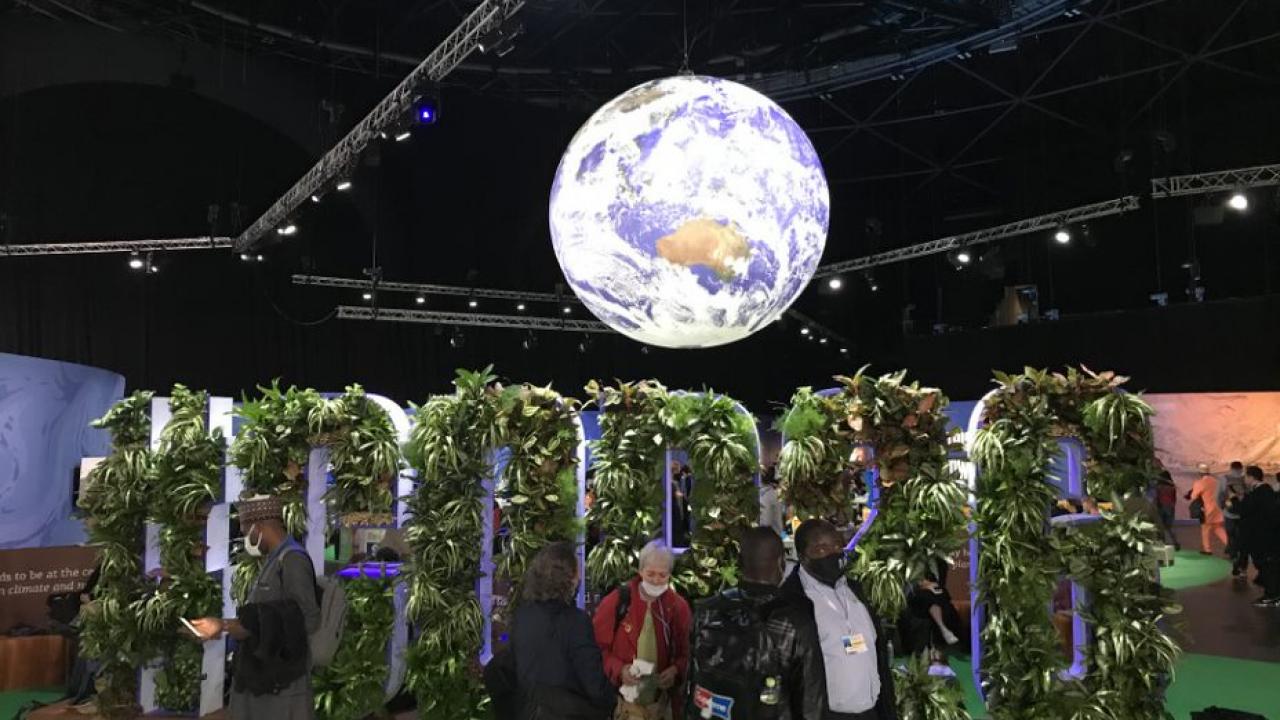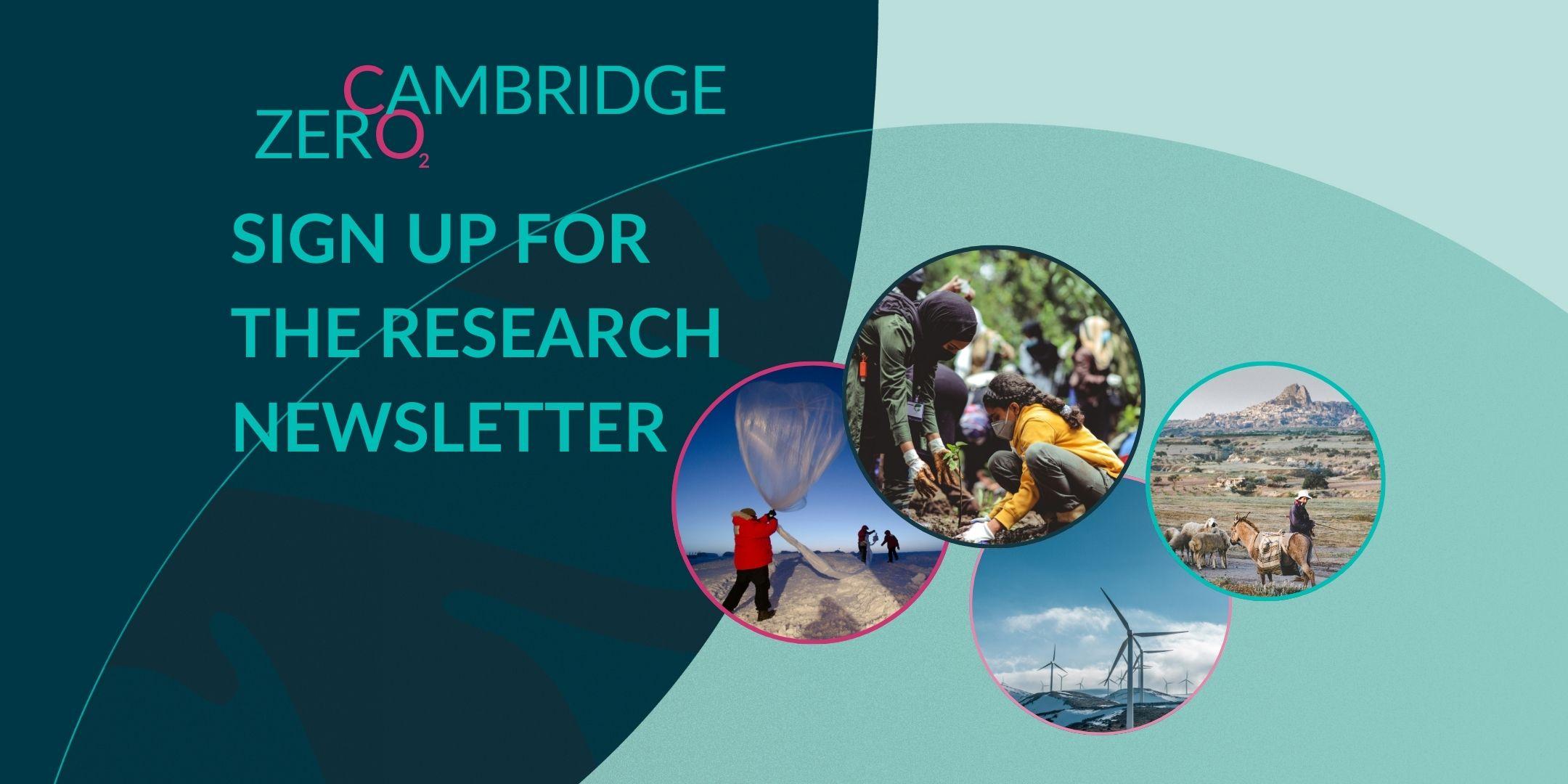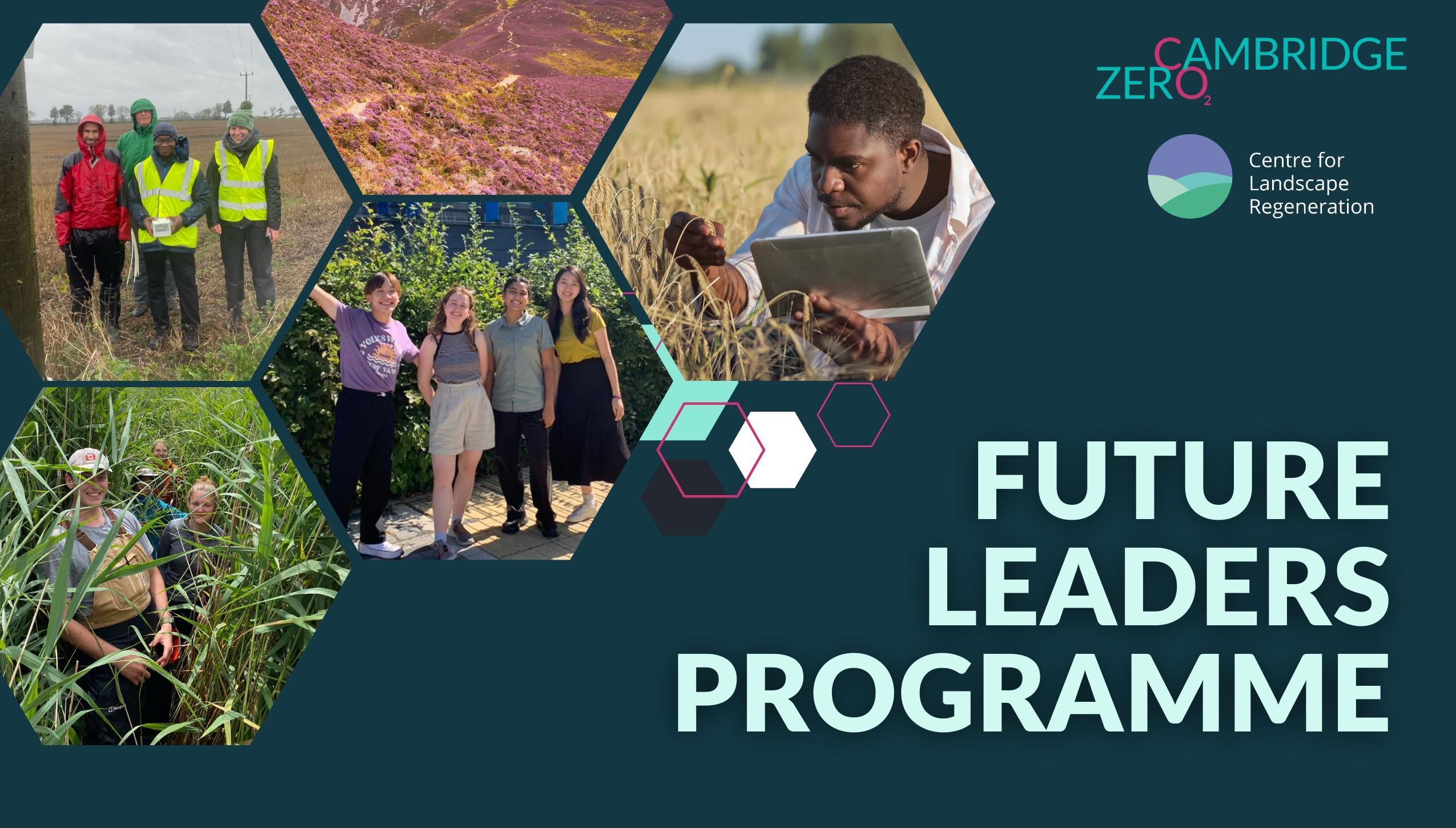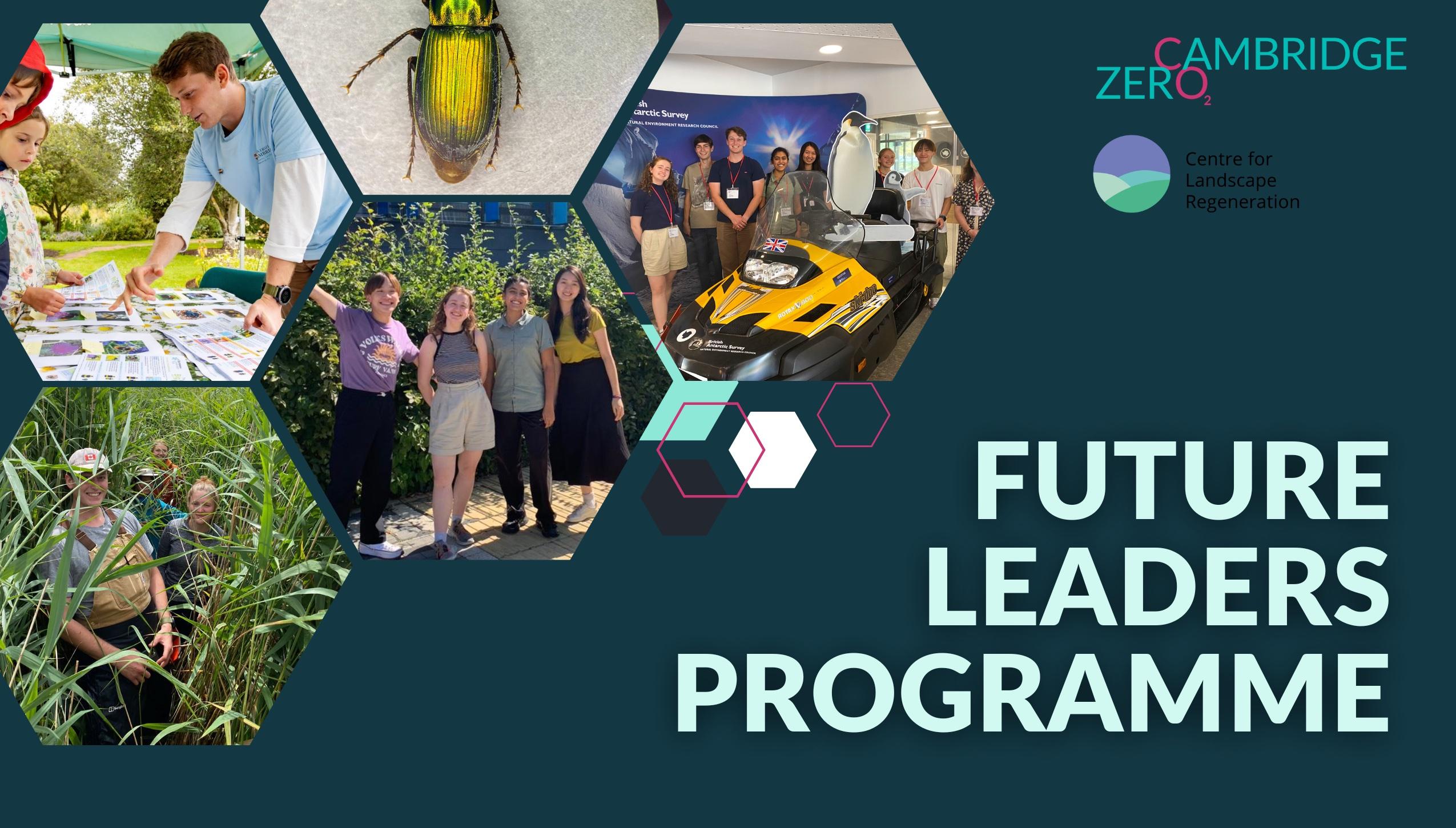Cambridge Researcher Natalie Jones is reporting for The Earth Negotiations Bulletin. In their highlights from the main proceedings of Adaptation, Loss and Damage Day (8th November), they cut through the jargon to explain the key terms:
- Adaptation - explained as ‘reducing vulnerabilities and improving resilience to the impacts of climate change’.
- Loss and Damage - what occurs ‘when adaptation fails or proves impossible’, meaning climate change results in ‘irreversible effects’. Loss and Damage can refer to ‘lost harvests and homes, livelihoods and lives’.
Their highlights from the day’s negotiations included:
- After the closing plenaries of the subsidy bodies who undertake technical work in COP’s week one, COP26 President Alok Sharma opened the second week’s more political phase of negotiations, alongside continued technical work.
- Finance negotiations continued with discussion on the new collective quantified goal. Setting a specific number is not the aim in Glasgow, rather establishing the process by which countries provide and mobilise finance. Divisions are reported to remain between developed and developing countries on how to set this new goal before 2025.
- Technology and Paris Agreement Implementation and Compliance continued steadily.
- Numerous issues from week one requires resolution including Article 6 (cooperative approaches e.g., carbon markets), adaptation and transparency issues, loss and damage, response measures, finance.
- The Earth bulletin report few COP veterans expect the process and meeting to end on time - Friday at 6pm.
The Earth Bulletin also drew attention to these events happening in the venue but outside the negotiating halls:
- In the presidency events, Sheila Jack Babauta, a Northern Marianas Island’s representative, relayed the impacts of climate-amplified storms in her home island. She also emphasises Indigenous people as not passive victims, rather knowledge holders with solutions to address the Climate Crisis.
- Former US President Barack Obama used his address to call for cultivating the will, passion and activism of citizens to push governments and companies to meet climate challenge. He emphasised the role of the youth and said “we can’t afford hopelessness’.
For more detail, read their full daily report for November 8th.
Follow Natalie Jones on twitter for live updates and our socials for coverage from across the Cambridge Community:
- Instagram: @Cambridgezero
- Twitter: @CambridgeZero
Cambridge on the Ground
Cambridge Zero at COP26
It was a very busy day for Cambridge Zero at COP26 as the event ‘Climate Risk and Tipping Points in the Polar Regions’ began in the morning at the Arctic Base Camp. Jointly hosted with the COP26 Universities Network, it included experts from British Antarctic Survey, the Scott Polar Research Institute, King’s College London and the University of Cambridge.
Dr Erik Mackie chaired the event which had arctic ice melting outside - a poignant reminder of the fragility of the region being discussed and which provides a home to indigenous communities and young people, as emphasised Dr Bravo (Scott Polar Research Institute). Discussion also considered the communication gap between scientists and policy makers, and if discussing tipping points of ice sheet loss is necessary or alarmist. To watch the session on-demand, click here.
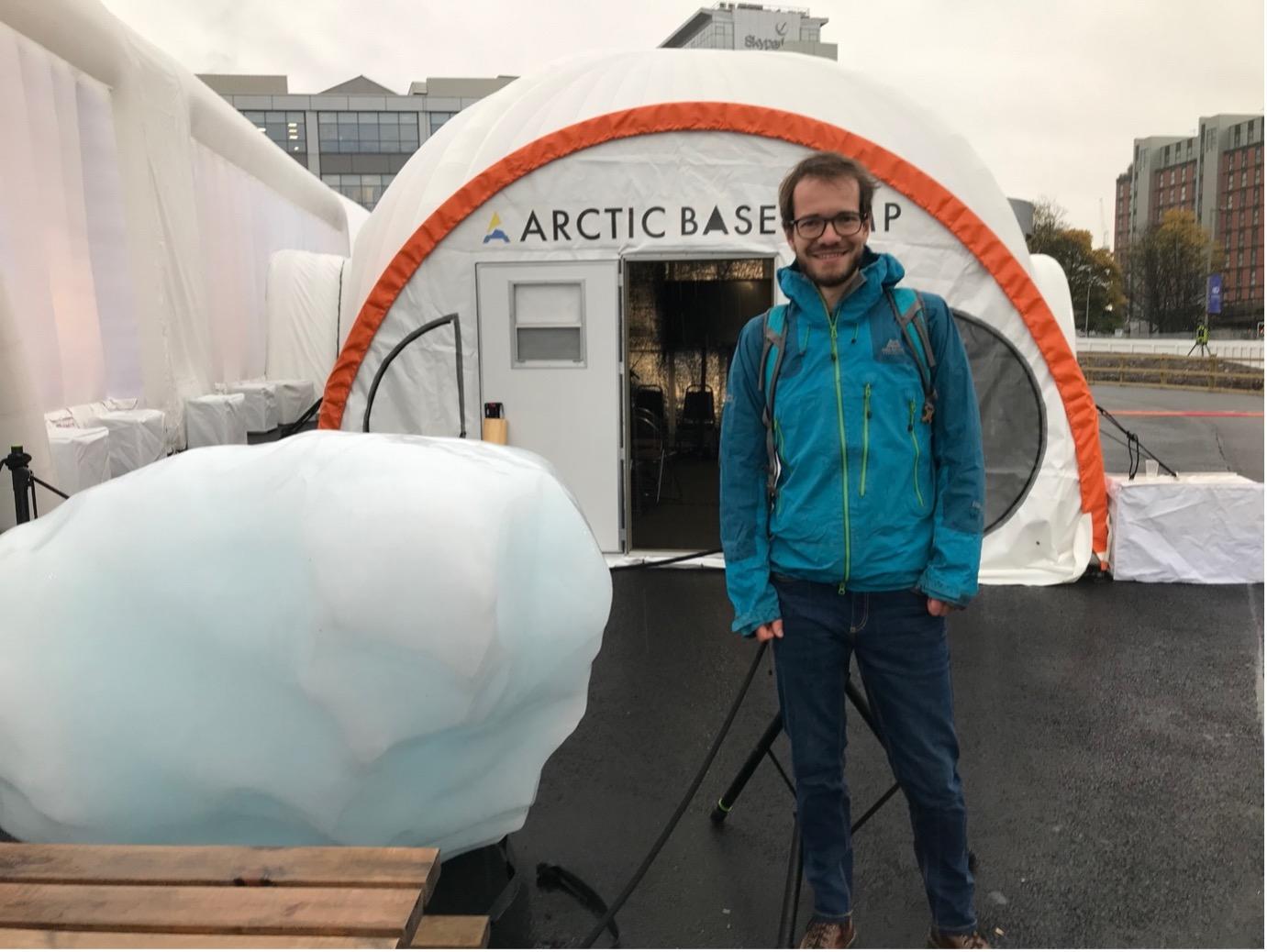
Later in the day, Dr Emily Shuckburgh featured in the COP26 Blue zone event ‘Building Forward Better: A blueprint and tools to meet global goals for climate, nature and people’ (Cambridge Institute for Sustainability Leadership and Birdlife International). In her talk, Dr Shuckburgh stated ‘the current situation is bleak’, highlighting the challenging context of coronavirus, climate, inequality and biodiversity loss, going on to emphasise ‘we can change this… but we need information, innovation and investment’. Watch the event on-demand here.
Students at COP26 - Friederike Hartz
Cambridge PhD Student Friederike Hartz was in attendance on the Monday of COP26 week two. She has given us her run down of what her Adaptation, loss and Damage Day at COP26 looked like:
First, I went to the Presidency’s informal stocktaking event in which the presidency summarized that they achieved good progress in the first week but there are still crucial issues that need further technical work and negotiation. This week will see ministerial consultations to achieve progress.
I wasn’t able to follow the Obama speech in the plenary but just outside. He urged countries to step up their pledges and actions.
I then bumped into Hindou Oumarou Ibrahim who is a Chadian environmental activist and fellow geographer who fights for climate justice for indigenous people and most vulnerable communities. I really enjoyed seeing her. She gave a talk at my old university once and I have been amazed and inspired by her ever since!
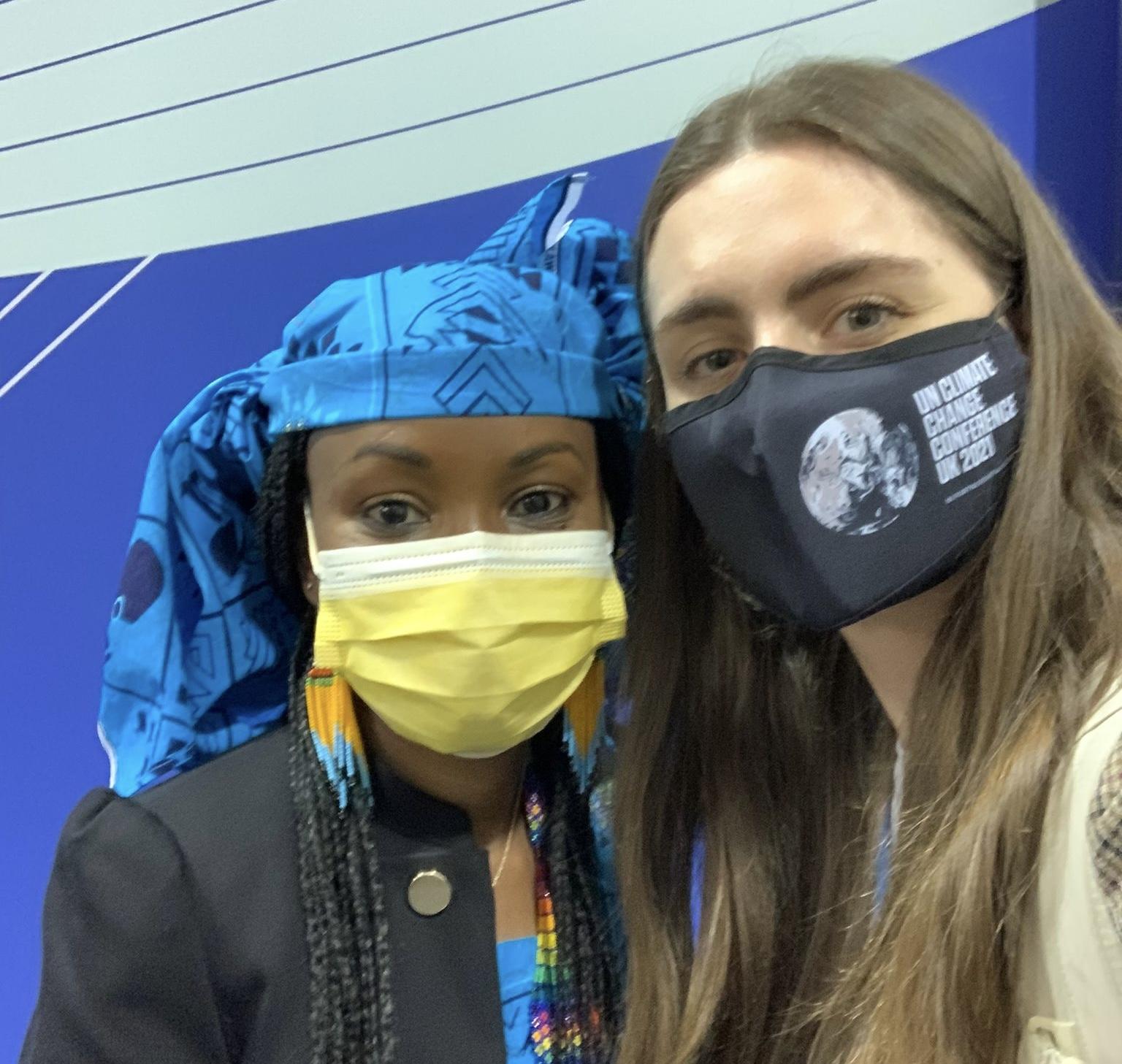
Finally, I went and took a look at the Action Area B. It was good for me to get an overview from above. It was only my first day at COP but I already met so many fascinating people, most of whom I only know from the screen! It was good to take this look from above and breath in for a second.
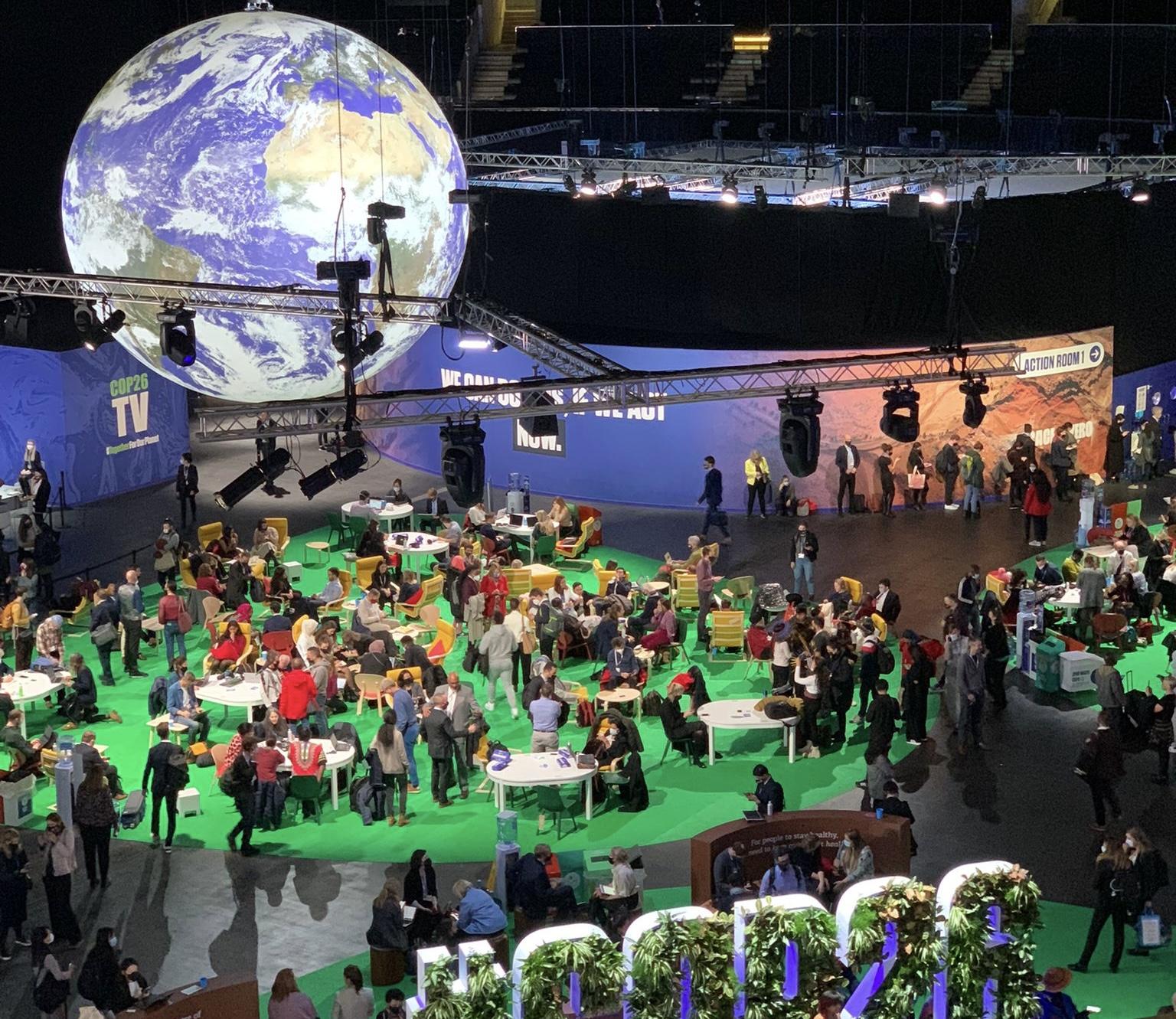
Students at COP26 - Qintian Yao
Cambridge MPhil Student Qintian Yao attended the Gender Just Climate Solutions Awards Ceremony at COP26 yesterday. Their feedback from the experience:
We have realised how crucial a role women can play towards climate change adaptation. Today, at a conference, I see women's innovation and expertise, providing technical, non-technical, and transformational solutions. These largely improve lives and livelihoods, particularly in the developing countries. Further, equal access to financial resources, decision-making spheres, and education and training should be achieved, to empower women to play a full role in tackling climate change.
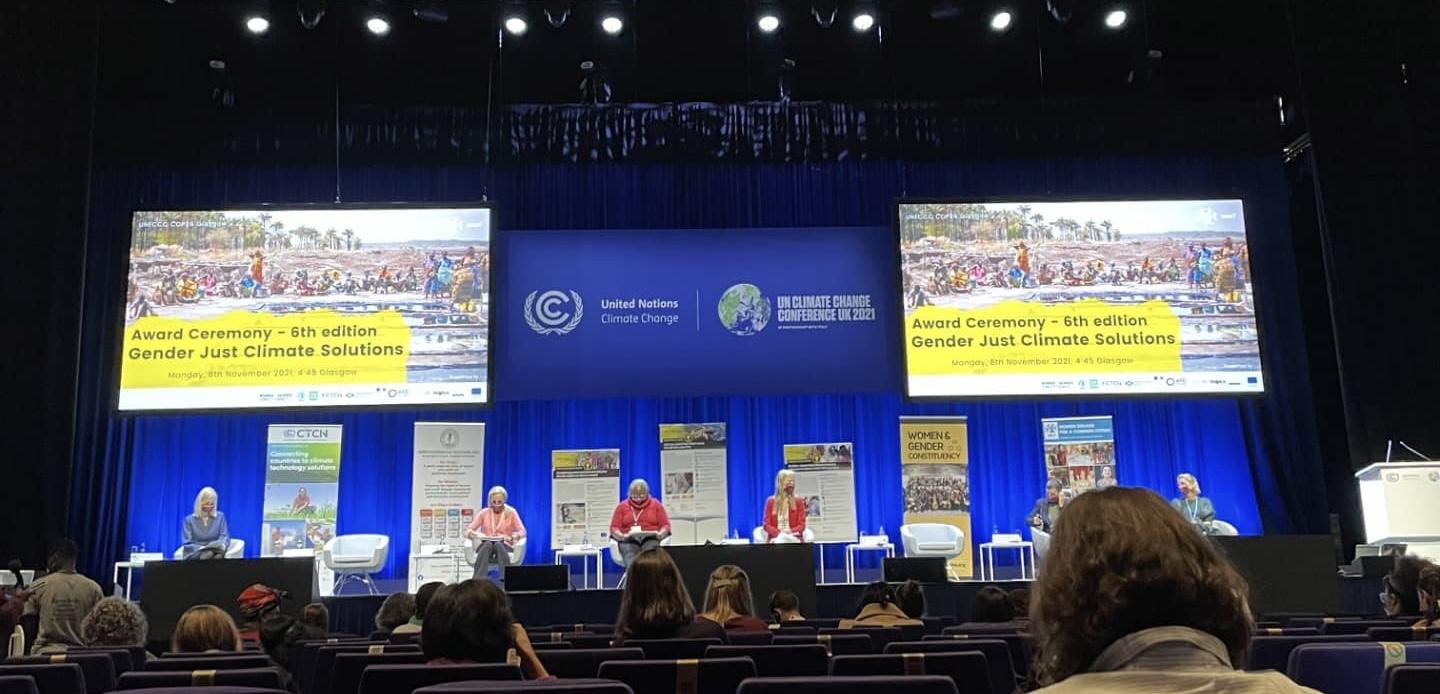
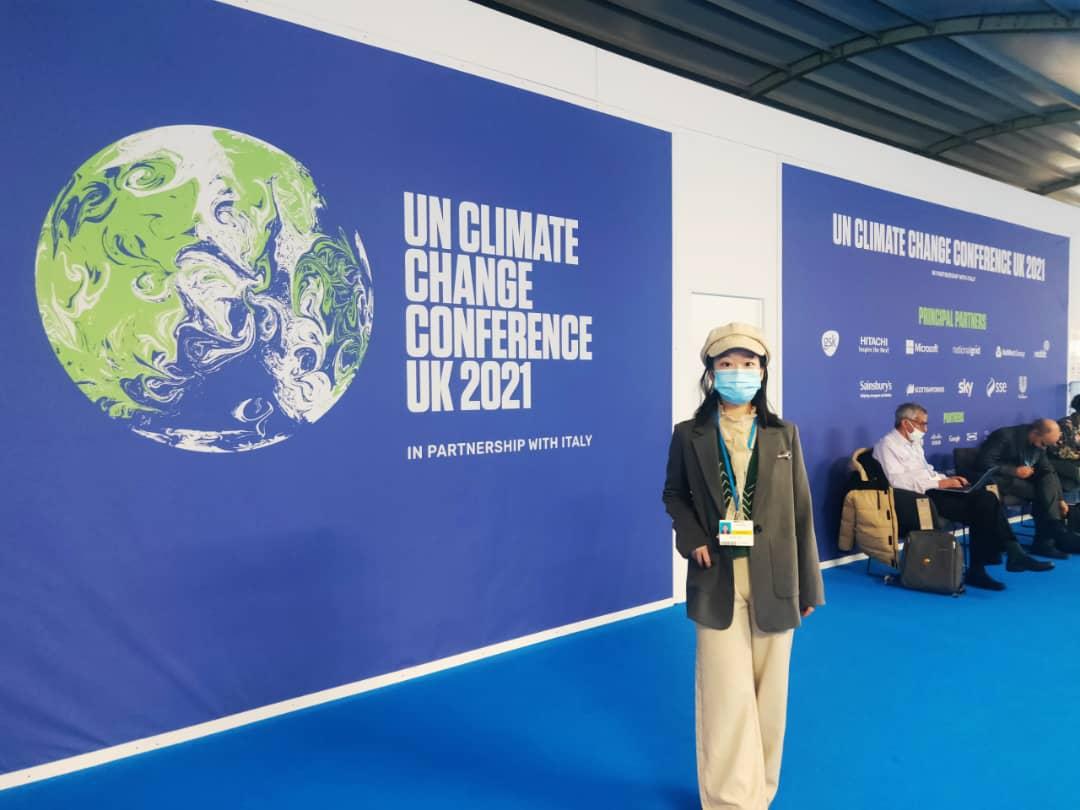
If you would like to be involved with our COP26 coverage or have any questions, please email Ella Palmer, ep541@cam.ac.uk.
